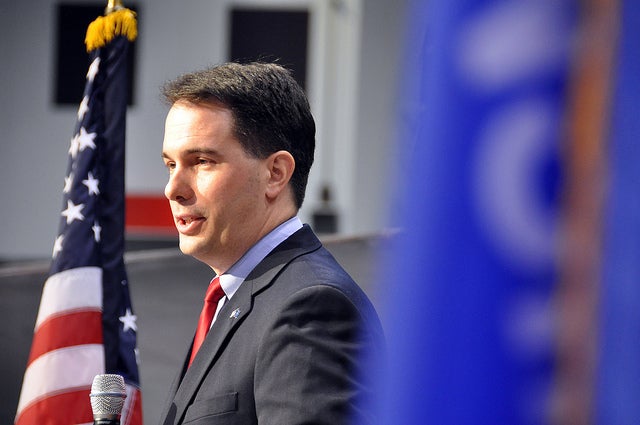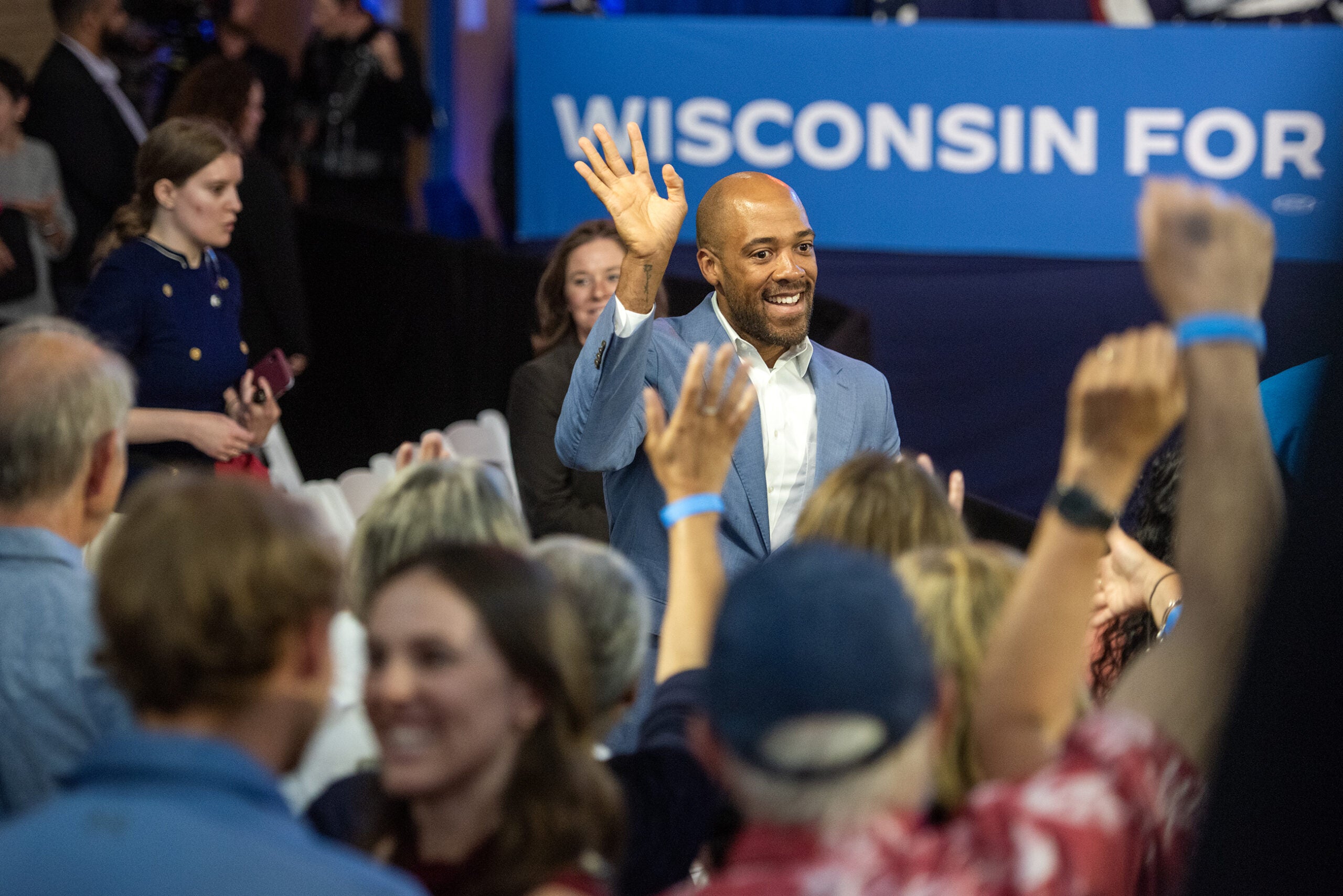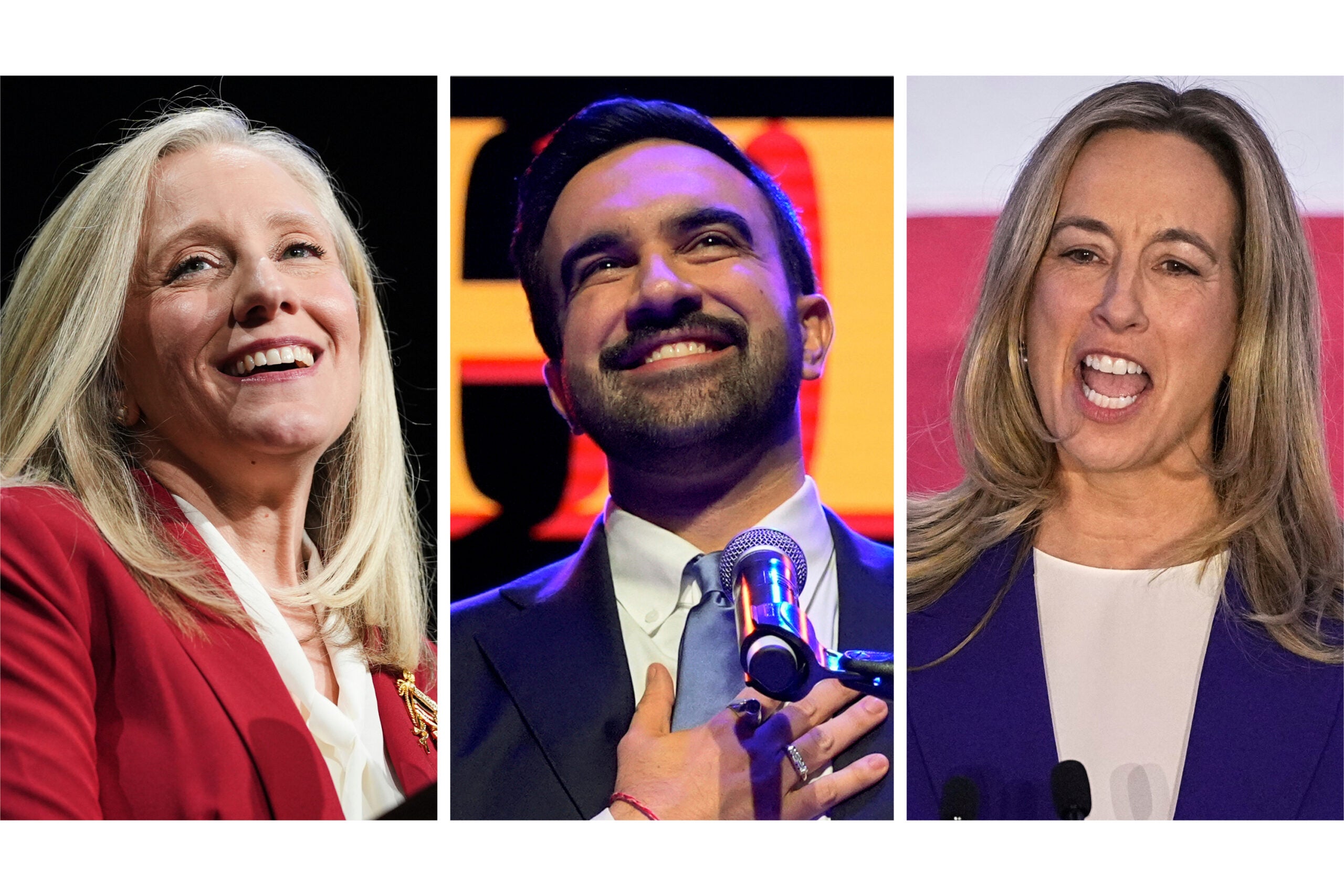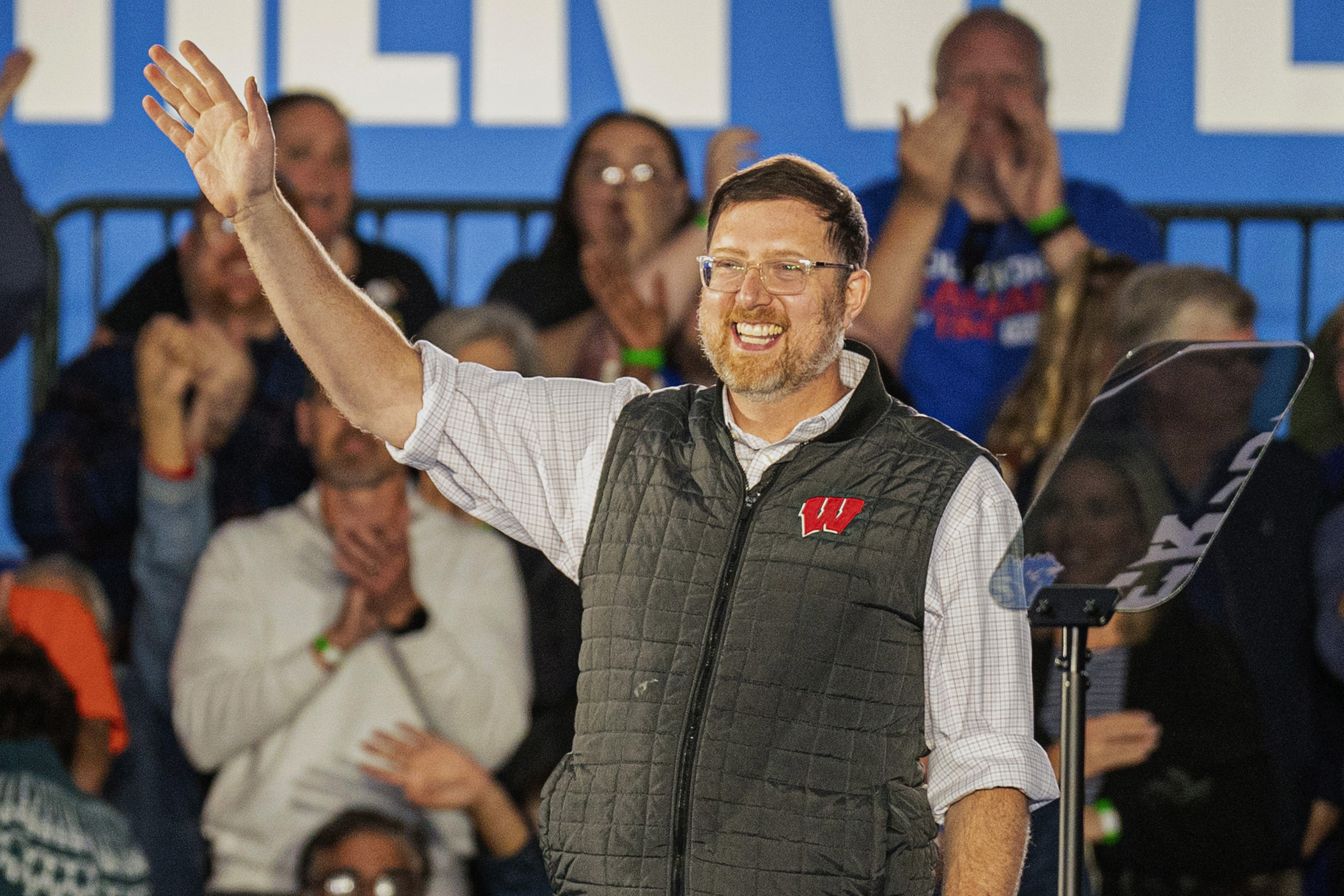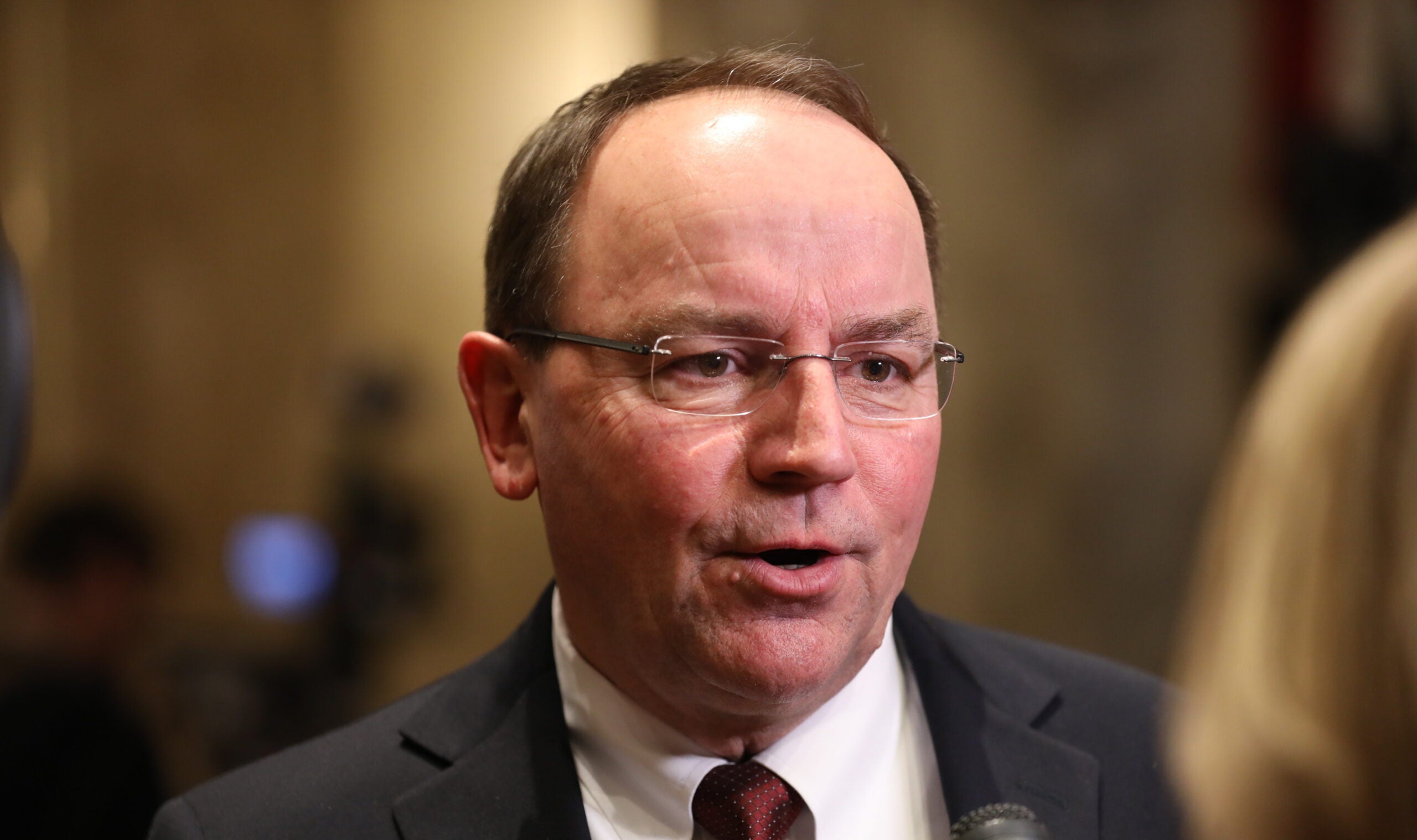Republican Gov. Scott Walker won a second term as Wisconsin’s governor on Tuesday night.
Walker defeated Democrat Mary Burke, a former Trek Bicycle Corp. executive and state commerce secretary.
The Associated Press called the race in Walker’s favor shortly before 10 p.m. Walker has claimed nearly 52 percent of the vote to Burke’s 46 percent, with nearly 99 percent of precincts reporting.
News with a little more humanity
WPR’s “Wisconsin Today” newsletter keeps you connected to the state you love without feeling overwhelmed. No paywall. No agenda. No corporate filter.
Walker’s victory was his third gubernatorial election in just four years. His victory speech made strong hints at his long-rumored national ambitions.
When Walker first won election in 2010, his conservative positions weren’t entirely known by the electorate. When he won in 2012, some voters said they didn’t necessarily support Walker, but they didn’t like the recall process.
Tuesday’s election was more straightforward. It was a referendum on Walker and his policies during his four years in office.
After fielding a call from Burke conceding the race, Walker spoke to supporters gathered in West Allis. Walker told his fellow Republicans that his latest win showed the public supported his record.
“It’s interesting,” he told the crowd. “When you think about the last couple months, if not the last couple years, it’s interesting the challenges we’ve faced. You see, there was a group out of Washington, Washington-based special interests, who thought they could spend a lot of money and a lot of time in this state and somehow convince the people of the state to be against something. I got to tell you, I’m an optimist. I believed all along, if we got a positive message out there, in the end, people of this state want to be for something, not against something, and look what happened here tonight.”
His remarks took aim at Washington, D.C., politics and groups and emphasized individual liberty and personal responsibility.
Walker mentioned Washington 10 times in his speech, never in a flattering light. Similarly, when he praised the voters of Wisconsin, it morphed into a national message.
“I’ve met some amazing people who’ve come here from other countries, who’ve come here to Wisconsin and to America. And you know what? To a person, all those people I met, who’ve been successful in this state, have never once said to me, the reason they came to America is because in America, it’s one of the few places left in the world where it doesn’t matter what your parents do for a living, it doesn’t matter what class you were born into,” he said. “In America, you can do or be anything you want.”
“We believe the opportunities are equal but the outcome is up to you,” he said.
Walker also attributed his victory to a campaign that emphasized positivity and offered a vision for the future.
“I’m an optimist,” he said. “All along, I thought people wanted to be for something and not against something.”
Walker also praised Burke, mentioning his encounter with her at a campaign event the day before the election when they both stopped what they were doing and posed for a picture.
“And I know there are disagreements on policy issues, but I think that picture symbolizes tonight that she had a great love for her state, just like her supporters did. Together, we are Wisconsinites more than we are Republicans or Democrats,” he said.
During his speech, Walker gave no hint of what policies he will pursue with his new mandate.
“Let’s move on to four more great years,” Walker said.
Despite Loss, Burke Urges Supporters To Get ‘Right Back Up’
During her concession speech, Burke told her supporters gathered in Madison to not be discouraged by her defeat. The crowd’s mood was much more subdued, but Burke told her supporters to keep fighting.
“Tonight, Wisconsin re-elected Gov. Walker. And for many of us, it feels a bit like getting knocked down,” she said. “But, if I’ve learned anything over the last 13 months, it is this: This state we all love so much is full of people and communities that can take a hit, but that never waiver in getting right back up.”
“We’re going to dust ourselves off and we’re going to get right back up,” she said.
She congratulated Walker on what Burke called a “hard-fought victory.”
Burke will remain a member of the Madison Metropolitan School District’s Board of Education after the loss. This was her first campaign for statewide office.
During the campaign, Burke argued that Walker failed the state and was too divisive, but Walker prevailed by arguing that he turned around the state’s economy while cutting taxes and wiping out a budget shortfall.
The race between Walker and Burke had been running tight in recent weeks. A Marquette Law School poll, however, gave Walker a 7-point lead among likely voters at the end of last month.
The poll found that Walker was polling at 50 percent among those who identify as likely voters, whereas Burke was polling at 43 percent — a statistically significant lead outside of the margin of error.
Republicans Increase Majorities In State Legislature
But for Wisconsin Democrats, Tuesday night was quite a blow.
Republican Brad Schimel won the state attorney general’s race and the GOP maintained control of the state Senate, growing their majority by one seat. Republicans might have also increased their already large majority in the Assembly.
The end result is a state government even more conservative than when Walker was first elected, ready to carry out his agenda in January.
Walker’s Victory Keeps Speculation Alive About Presidential Run
Walker’s win Tuesday marks his third victory in four years. He won a first term in 2010 and a recall election in 2012 prompted by anger over a law that effectively ended collective bargaining for most public-sector workers.
The win also keeps Walker in the mix for a potential 2016 GOP presidential bid, although he downplayed such talk during the tough re-election campaign against Burke.
Walker’s speech hinted strongly that he might be looking ahead to a run for president, according to University of Wisconsin-Madison political science and journalism Professor Michael Wagner.
“If you’re someone who thinks that Gov. Walker is interested in running for president, you could find a lot of evidence in that speech that suggests that’s true,” he said.
When the governor was asked about his future plans on Tuesday night by the Associated Press, Walker said his first priority was working on next year’s legislative agenda. Any decisions about running for President, Walker said, “will have to wait.”
Stay tuned to Wisconsin Public Radio and WPR.org for continuing coverage.
Wisconsin Public Radio, © Copyright 2025, Board of Regents of the University of Wisconsin System and Wisconsin Educational Communications Board.

